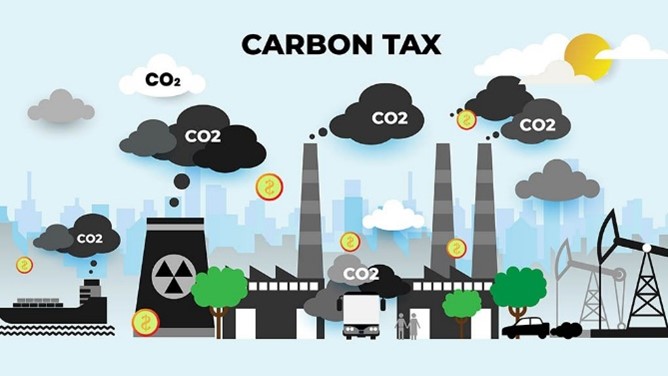Impact of international trade agreements on sustainable business practices

Impact of international trade agreements on sustainable business practices
by vivienne 03:43pm Jan 02, 2025

International trade agreements play a significant role in shaping sustainable business practices by setting the framework for trade policies, regulations, and standards that influence environmental, social, and economic outcomes. These agreements can either promote or hinder sustainability, depending on how they are structured. Here's a breakdown of how they impact sustainable business practices:
1. Encouraging Environmentally Friendly Standards
Incorporation of Environmental Provisions: Many international trade agreements now include environmental clauses aimed at reducing environmental harm. For example, trade agreements like the European Union’s Free Trade Agreements (EU FTAs) or the Comprehensive and Progressive Agreement for Trans-Pacific Partnership (CPTPP) promote commitments to reduce carbon emissions, protect biodiversity, and manage natural resources sustainably.
Green Trade Policies: Trade agreements can encourage the adoption of green technologies by lowering tariffs on eco-friendly products, facilitating the international exchange of renewable energy solutions, or promoting eco-labeling. These actions help businesses comply with sustainability goals by incentivizing the use of green technologies and products.

2. Promoting Corporate Social Responsibility (CSR)
Labor Standards and Human Rights: Trade agreements often incorporate clauses related to workers' rights, fair wages, and working conditions, compelling businesses to adopt responsible practices in their supply chains. For example, the US-Mexico-Canada Agreement (USMCA) includes provisions to ensure that labor standards are met, which, in turn, can improve working conditions and reduce exploitation in international trade.
Supply Chain Transparency: To comply with international standards, businesses may have to disclose information about the sustainability of their supply chains, including the sourcing of raw materials and adherence to ethical labor practices. This transparency fosters the adoption of sustainable supply chain management practices and minimizes exploitation and environmental degradation.
3. Facilitating the Transfer of Sustainable Technologies
Technology Transfer Provisions: Some international trade agreements contain provisions for the transfer of clean technologies between countries, particularly from developed to developing nations. These provisions are designed to ensure that businesses can access and adopt sustainable technologies, such as renewable energy solutions, energy-efficient machinery, and waste-reduction technologies.
Market Access for Clean Technologies: By reducing trade barriers for green technologies, agreements can encourage businesses to adopt more energy-efficient or less polluting processes, thereby reducing their carbon footprint and fostering sustainable innovation.

4. Regulation of Sustainable Products
Market Access for Sustainable Products: Trade agreements can help sustainable products gain international market access by reducing tariffs and trade barriers. For example, products made from recycled materials or with a smaller carbon footprint may benefit from lower duties, creating incentives for businesses to produce and sell eco-friendly goods.
Harmonization of Standards: By aligning international product standards, trade agreements can simplify the process for businesses to comply with sustainability criteria across multiple markets. This harmonization can make it easier for companies to ensure their products meet global environmental standards without having to navigate complex regulatory landscapes in different countries.
5. Carbon Border Adjustment Mechanisms (CBAM)
Encouraging Low-carbon Practices: Some trade agreements are increasingly considering the inclusion of carbon border adjustment mechanisms (CBAM). These mechanisms impose tariffs on imported goods based on their carbon emissions, incentivizing businesses in countries with high carbon footprints to adopt cleaner production methods. This can push companies to lower their emissions to remain competitive in international markets, promoting sustainability.
For example, the EU's proposal to implement CBAM in its trade agreements with various countries aims to prevent carbon leakage (where companies move production to countries with weaker climate policies) and create a level playing field for businesses adhering to stringent environmental standards.
6. Supporting Sustainable Agriculture and Fisheries
Agriculture and Fisheries Sustainability: Agreements like the World Trade Organization's (WTO) Agriculture Agreement and regional trade deals can influence sustainable practices in agriculture and fisheries by setting limits on subsidies for practices that harm the environment, such as overfishing or deforestation. They can also promote the adoption of sustainable farming techniques, such as organic agriculture and agroforestry, by creating incentives and market access for these products.
Sustainable Trade in Commodities: Agreements can also encourage the trade of sustainable raw materials like certified sustainable palm oil, timber, or cocoa by ensuring that companies comply with certification standards like Fair Trade, Forest Stewardship Council (FSC), or Rainforest Alliance.

7. Facilitating Green Investment
Encouraging Green Finance: Trade agreements can create conditions that attract investment in sustainable businesses. For instance, by guaranteeing intellectual property rights (IPR) for clean technologies and offering investment protections for green industries, international agreements can stimulate the flow of green finance to support sustainable business models.
-
Trade deals can also facilitate collaboration between countries and corporations to finance environmental projects, particularly in developing countries where funding for sustainability initiatives is often limited.

8. Promoting Sustainable Tourism
Tourism Industry Regulations: International trade agreements that include tourism can include sustainability clauses that encourage environmentally responsible practices in tourism, such as limiting carbon emissions from transport, promoting eco-friendly accommodations, and preserving cultural heritage.
The promotion of eco-tourism is often a central element in such agreements, ensuring that tourism-related businesses follow sustainable practices that protect local ecosystems and contribute to the long-term economic benefits of the region.

Challenges and Considerations
Conflict Between Trade and Sustainability: In some cases, international trade agreements may prioritize economic growth over sustainability, leading to unsustainable practices such as overproduction or excessive resource extraction. Small businesses may also struggle to meet international standards due to high compliance costs.
Unequal Impact: Trade agreements may disproportionately benefit larger corporations, leaving smaller, sustainable businesses at a disadvantage. Developing nations may face challenges in implementing sustainability practices due to lack of resources, technology, or infrastructure.
Conclusion
International trade agreements can have a profound impact on fostering sustainable business practices by promoting environmental protection, fair labor standards, and the adoption of sustainable technologies. While these agreements can drive positive change, they also present challenges that need to be carefully addressed to ensure that sustainability goals are effectively integrated into global trade systems. Balancing economic growth with environmental and social responsibility will be essential in ensuring that trade agreements benefit both businesses and the planet in the long term.






